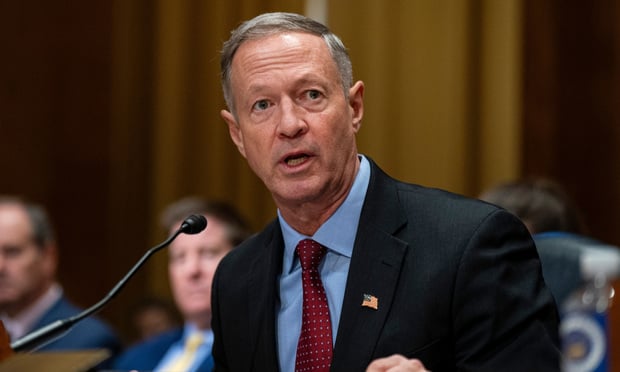Whether people believe in it or not, climate change is here—andit’s going to change not just temperatures and sea levels but alsobusiness—and jobs.
|The BBC reports that weather effects are just one facetof the changes being wrought by a warming climate; everyone whoworks, no matter what their field, will be affected too.
|Related: Insurers, banks and pensions face climatechange risk
|The report says, “Climate change is shaking up everything fromfinance to health. As a result, it isn’t only urban planners inat-risk areas who will have to shift their framework for planningfor the future. From financial planners to farmers, civil engineersto doctors, an increasingly wide range of other professionals arelikely to find their industries affected.”
|And that will affect everyone from young to old—millennialstrying to build careers and save for the future may have to rethinktheir plans and strategies, while older workers who might alreadybe struggling to remain in the workforce to supplement (or evenbegin) retirement savings might find it even harder to keepworking, or else change professions altogether—or relocate to wherenew jobs are growing.
|The report quotes Andrew Winston, author of the book The BigPivot: Radically Practical Strategies for a Hotter, Scarcer, andMore Open World, saying, “Everyone is going to need tounderstand [climate change] the same way you’d assume everyone inbusiness needs to have some fluency in social media today, or thateveryone would able to use a computer 20 years ago.”
|People are already struggling to stay nimble in moving from jobto job, or even adding gig economy jobs into an already crowdedschedule. But the promise (or threat) of having to make even moredrastic adjustments is something we’ll have to consider in the daysand years to come.
|Not only will many have to consider transitioning to employmentin a green economy, including sustainability initiatives, otherswill have to adapt to job requirements for advanced degrees andskills in meeting the challenges of a changing climate.
|A Financial Times report by Mark Fawcett, chiefinvestment officer of NEST, the U.K. pension provider, highlightsjust one of the many ways people will be affected: millennials’pensions. Fawcett points to Trump’s withdrawal from the ParisClimate Accord as an action not typical of where the future’seconomy is heading: to greener pastures.
|While Fawcett points out that it’s not clear what impact Trump’srejection of the accord and of former President Obama’s Clean PowerPlan—“what one commentator called ‘the most important thing anynation had ever done to reduce carbon emissions’”—the rest of theworld is moving in the opposite direction.
|While U.S. workers may have to relocate to work for some of thelargest markets in a future economy—think China and India, amongothers, both spending freely to build a green energy economy, andutility companies in EU countries as they seek to meet Pariscommitments—investors, including institutional investors, aremoving money into areas that will “prepare their portfolios for theevident risks and opportunities that climate change and thetransition to low carbon represent.”
||Millennials would be well advised to pay heed, since, Fawcettsays, “Over the next 15 years or so, £1.7 trillion[$2.191 trillion] is due to flow into defined contribution pensionsin the U.K. We believe a significant proportion of those assetswill be channeled towards a greener global economy.” And you canbet U.S. institutional investors, regardless of the currentadministration’s retreat, will be following along.
|Then there’s the issue of income inequality—because climatechange is going to come down a lot harder on the poor than on therich in the U.S. In fact, it could actually help the latter.
|A report in the Santa Fe New Mexican points out a new studypublished in the journal Science that “details how globalwarming could disproportionately affect poor areas of the country,contributing to widening economic inequality among Americans.”
|“The poor regions will get poorer and the richer regions willbenefit,” study coauthor Solomon Hsiang, a professor of publicpolicy at the University of California, Berkeley, is quoted saying,adding, “What we’re seeing here is that climate change will have avery large impact on the quality of life and economic opportunityin the coming decades for ourselves and our children.”
|Just how bad will it be? Overall, the study finds, the U.S.economy would likely lose about 0.7 percent of its gross domesticproduct for each 1 degree Fahrenheit rise in global temperatures,although each degree of warming will bring more costs than thelast. But that’s not going to hit Americans uniformly.
|Instead, the poorest third of U.S. counties, many in the Southand lower Midwest, could, toward the end of this century, suffereconomic losses comparable to those during the Great Recession. Thestudy finds that the Gulf Coast would be threatened by hurricanesand encroaching seas, while hotter temperatures in the South wouldsee air conditioning costs soar while driving down productivity.And Midwestern agriculture could see losses on par with the DustBowl of the 1930s, only “these long-term changes are here to stay,”Hsiang said.
||According to the report, Northern and Western areas of thecountry are likely to be in for less substantial damages, withresearchers saying they might even benefit from warmingtemperatures that could bring longer growing seasons and lowerenergy costs.
|In the end, the authors concluded, “combining impacts acrosssectors reveals that warming causes a net transfer of value fromSouthern, Central and Mid-Atlantic regions toward the PacificNorthwest, the Great Lakes region, and New England. … [B]ecauselosses are largest in regions that are already poorer on average,climate change tends to increase preexisting inequality in theUnited States.”
|Another study published in late 2015 in Nature, saysthe report, “found a strong relationship between a region’s averagetemperature and its economic productivity,” with researcherscomparing economic and temperature data for more than 100 wealthyand poorer countries over half a century. The findings? The optimumtemperature for human productivity appears to be about 55 degreesFahrenheit on average. Beyond that, economic productivity“strongly” began to decline.
|The numbers from these studies point to the potential forgrowing inequality not just in the U.S., but globally—since“already hot, poor countries are likely to experience the mostsevere temperature increases.”
|And it won’t be going away any time soon, like the problems thataccompany economic downturns are sometimes wont to do. Instead itwill necessitate a complete attitude adjustment on jobs, standardsof living, and what retirement may look like in future decades.
|Hsiang said in the report, “When you impose these costs on theeconomy, they just don’t go away,” he said. “It’s like an ongoingrecession we just never climb out of.”
Complete your profile to continue reading and get FREE access to BenefitsPRO, part of your ALM digital membership.
Your access to unlimited BenefitsPRO content isn’t changing.
Once you are an ALM digital member, you’ll receive:
- Critical BenefitsPRO information including cutting edge post-reform success strategies, access to educational webcasts and videos, resources from industry leaders, and informative Newsletters.
- Exclusive discounts on ALM, BenefitsPRO magazine and BenefitsPRO.com events
- Access to other award-winning ALM websites including ThinkAdvisor.com and Law.com
Already have an account? Sign In
© 2024 ALM Global, LLC, All Rights Reserved. Request academic re-use from www.copyright.com. All other uses, submit a request to [email protected]. For more information visit Asset & Logo Licensing.








